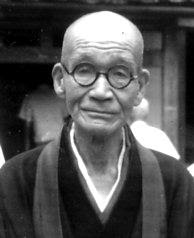.
.
To the few experiences which helped me along the way
toward my life’s true goal I added this new one: the
observation of such configurations [staring at a fire,
tree roots, veins in rock, smoke, clouds, water,
reflections, light, dust, swirling specks of light when
eyes are closed].
The surrender to Nature’s irrational, strangely confused
formations produces in us a feeling of inner harmony with
the force responsible for these phenomena. We soon fall
prey to the temptation of thinking of them as being our
own moods, our own creations, and see the boundaries
seperating us from Nature begin to quiver and dissolve.
We become acquainted with that state of mind in which
we are unable to decide whether the images on our retina
are the result of impressions coming from without or
from within. Nowhere as in this exercise can we discover
so easily and simply to what extent we are creative, to what
extent our soul partakes of the constant creation of
the world. For it is the same indivisible divinity
that is active through us and in Nature, and if the
outside world were to be destroyed, a single one of us
would be capable of rebuilding it: mountain and stream,
tree and leaf, root and flower, yes, every natural
form is latent within us, originates in the soul whose
essence is eternity, whose essence we cannot know but
which most often intimates itself to us as the power
to love and create.
The next time we were together, the organist gave me
an explanation: “We always define the limits of our
personality too narrowly. In general, we count as part
of our personality only that which we can recognise as
being an individual trait or as diverging from the norm.
But we consist of everything the world consists of, each
of us, and just as our body contains the genealogical table
of evolution as far back as the fish and even much further,
so we bear everything in our soul that once was alive in
the soul of men. Every god and devil that ever existed,
be it among the Greeks, Chinese, or Zulus, are within us,
exist as latent possibilities, as wishes, as alternatives.
If the human race were to vanish from the face of the earth
save for one halfway talented child that had received no
education, this child would rediscover the entire course
of evolution, it would be capable of producing everything
once more, gods and demons, paradises, commandments, the
Old and New Testament.”
“Yes, fine,” I replied. “But what is the value of the
individual in that case? Why do we continue striving if
everything has been completed within us?”
“Stop!” exclaimed Pistorius. “There’s an immense
difference between simply carrying the world within us
and being aware of it. A madman can spout ideas that
remind you of Plato, and a pious little seminary student
rethinks deep mythological correspondences found among
the Gnostics or in Zoroaster. But he isn’t aware of them.
He is a tree or stone, at best an animal, as long as he is not
conscious. But as soon as the first spark of recognition
dawns within him he is a human being. You wouldn’t
consider all the bipeds you pass on the street human
beings simply because they walk upright and carry their
young in their bellies nine months! It is obvious how
many of them are fish or sheep, worms or angels, how
many are ants, how many are bees! Well, each one of
them contains the possibility of becoming human, but
only by having an intimation of these possibilities,
partially even by learning to make himself conscious
of them; only in this respect are these possibilities his.
.
~ Herman Hesse
.


































